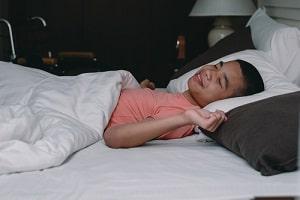Chicago, IL 60601
FREE CONSULTATIONS 312-462-4200
TOLL FREE 833-462-4200
How Can Cerebral Palsy Cause Sleep Issues for Children?

Sleep is an important part of everyone’s life. Those who struggle with problems that make it difficult to fall asleep or stay asleep will not only have trouble getting enough rest, but their overall health may also be affected. Unfortunately, cerebral palsy can often lead to a variety of sleep issues for children. Parents will want to make sure they are doing everything they can to protect children’s health while allowing them to live happy and fulfilling lives. By understanding the factors that may lead to sleep problems, they can determine the best ways to help children get the rest they need while also addressing any related issues that may affect their physical or mental health.
Causes of Sleep Deficiency for Children With Cerebral Palsy
Sleep deficiency may involve multiple different types of disruptions in a child’s normal sleep patterns, including resistance to going to sleep, waking up during the night or in the early morning, and being unable to fall asleep without assistance. Sleep deficiency can have a variety of negative effects, including behavioral problems, mood disorders such as depression, cognitive impairments, decreased performance in school, and physical health problems such as obesity or sensory processing issues.
There are several factors related to cerebral palsy that may increase the likelihood of sleep issues, including:
-
Pain and discomfort - Children may have trouble sleeping if they suffer from chronic pain, and unfortunately, lack of sleep can also increase the severity of existing pain. Muscle spasms can also interfere with a child’s sleep, and lack of muscle control or the use of orthopedic devices may make it difficult to find a comfortable position.
-
Breathing problems - Obstruction of a child’s airways may lead to sleep apnea, which can interfere with sleep and restrict a child’s ability to get enough rest.
-
Sensory issues - Children with cerebral palsy may have increased sensitivity to light, sound, and temperature, and environmental factors within a home may affect their ability to fall and stay asleep.
-
Epilepsy - Children may suffer from seizures that can occur while falling asleep or waking up, or seizures that occur while sleeping may cause a child to wake up and make it difficult to fall asleep again. Lack of sleep may also increase the risk of additional seizures.
Parents may be able to use a variety of methods to help address their child’s sleep issues. Some medical interventions may be available, such as surgery meant to prevent sleep apnea or the use of medications to reduce spasticity. Parents can also help their children practice healthy sleep hygiene by following regular routines at bedtime, encouraging calming activities and allowing light snacks before bed, using bedding that increases a child’s level of comfort, and minimizing environmental factors such as light or sound that may affect a child’s sleep.
Contact Our Chicago Cerebral Palsy Birth Injury Lawyers
As a parent, you want to provide the best possible care for your child, ensure that their needs are met, and give them the tools to live a happy and healthy life. Unfortunately, if your child suffers from cerebral palsy, meeting their needs will likely involve a variety of significant expenses. At the Birth Injury Law Alliance, we will work with you to determine the forms of financial assistance that can help you meet your child’s needs. If your child experienced birth injuries that have affected their health and well-being, we will help you understand whether you can receive financial compensation. For a free consultation and an evaluation of your case, contact our dedicated Illinois birth injury attorneys today by calling us today at 312-462-4200.
Sources:
https://www.ncbi.nlm.nih.gov/pmc/articles/PMC4928749/
http://cpnet.canchild.ca/en/resources/83-sleep-issues-among-children-with-cerebral-palsy





